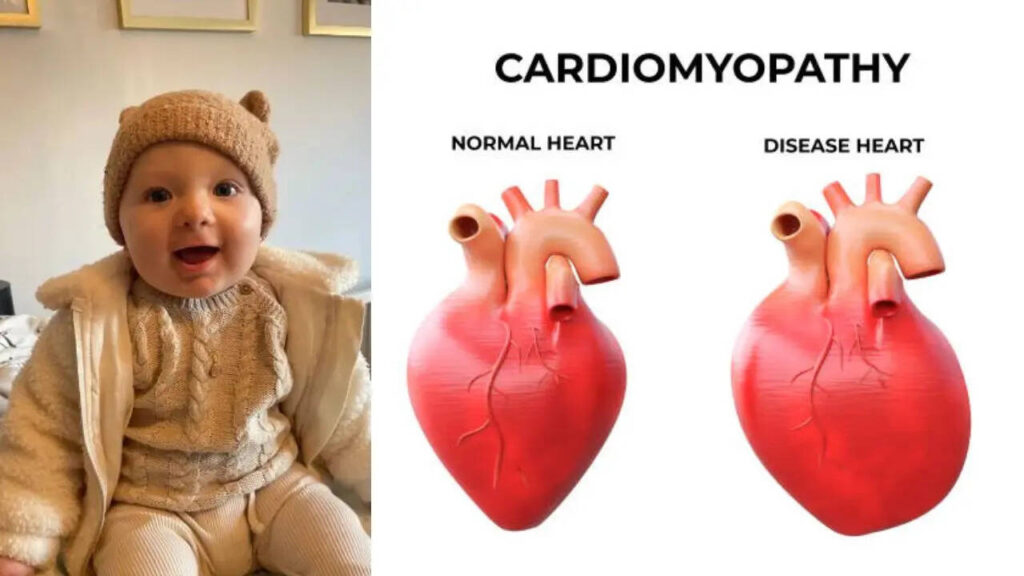Baby Dies from Heart Condition After Persistent Cough Was Ignored by Doctors (Pic credit: PA/iStock)
A seven-month-old baby died at the hospital after doctors continued to ignore his chronic cough, thinking it was just signs of a sore throat, his mother alleged. Tommy Kneebone was diagnosed with cardiomyopathy – a disease that affects the heart muscle, making it enlarged, thickened, rigid, or even weakened, forcing the heart to pump blood with difficulty.
Tommy’s mom, Shanice, had taken him to see the doctor in Kent several months before his death, but the signs were never identified clearly. According to various news reports, a hospital nurse had said that “maybe” they could have paid more attention to the mother’s concerns.
Shanice also told police that despite undergoing various genetic tests, nothing was found to “suggest a genetic cardiac problem” that they might have passed on to their son.
Tommy’s first symptoms
Tommy’s parents first noticed him coughing constantly when they returned from a holiday abroad, and he was prescribed antibiotics for a respiratory illness. However, his condition never got better, and he was continuously in and out of hospitals in the last three months.
Apart from coughing, Shanice said Tommy also started sneezing heavily. “Over the Christmas period, Tommy’s wheeze went away, but his cough persisted,” she told The Sun. However, one morning Tommy was unable to breathe properly and was taken to emergency services, where he was admitted to the ICU. “I said it was as if he had drunk a Red Bull; his heart was pounding out of his chest,” Shanice said.
Tommy continued to deteriorate and was ultimately put in a medically induced coma. However, two days later, Tommy died, and that is when doctors identified an underlying, undiagnosed cardiomyopathy, which they say caused his death.
What is cardiomyopathy?
Cardiomyopathy affects your myocardium, or the heart muscle, making it stiffen, enlarge, or thicken, and can cause scar tissue. Doctors say it results in your heart not being able to pump blood effectively to the rest of your body.
In time, your heart weakens and cardiomyopathy leads to heart failure, which is a life-threatening condition. Even though treatment helps, some people with cardiomyopathy eventually need a heart transplant. According to experts, cardiomyopathy affects anyone of any age, sex, or race, and the most common inherited cardiomyopathy, hypertrophic, affects about 1 in 500 people in the world.
What are the signs and symptoms of cardiomyopathy?
A few signs and symptoms of cardiomyopathy include:
Fatigue and tiredness- Heart palpitations
- Pain in the chest
- Arrhythmia
- Breathlessness and dyspnea
- Swelling in your legs or ankles
Syncope or fainting
Many people do not have any symptoms of cardiomyopathy and do not need the treatment, while others experience symptoms as their disease progresses.
What causes cardiomyopathy?
Doctors say the main causes of cardiomyopathy include genes you get from your parents, and there are thousands of genetic mutations that have been found to cause cardiomyopathies. Other cardiomyopathy causes include:
- Coronary artery disease
- Autoimmune diseases like connective tissue diseases
Infections that affect your heart muscle- Heart inflammation
- Diabetes
- Thyroid



